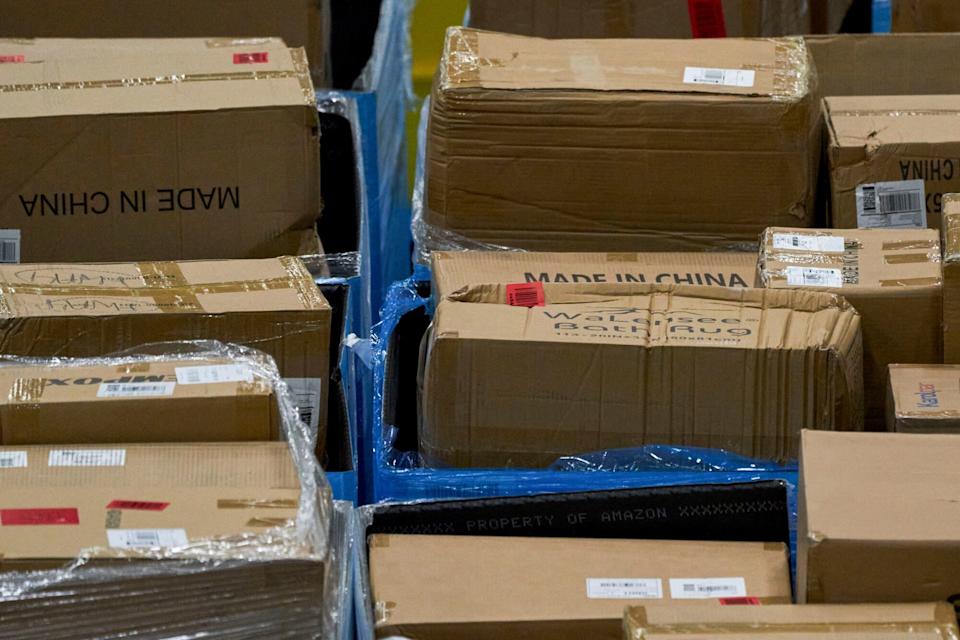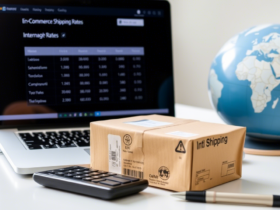Amazon Cancels Inventory Orders from China Amid Rising Tariff Concerns
In a move that underscores the growing impact of international trade tensions, Amazon.com Inc. (AMZN) has canceled orders for several products manufactured in China and other Asian countries. According to a document reviewed by Bloomberg and insights from individuals familiar with the matter, the cancellations appear to be linked to President Donald Trump’s recent announcement of tariffs on more than 180 countries and territories, including major manufacturing hubs like China, Vietnam, and Thailand. While Amazon has not explicitly confirmed the connection, the timing and nature of these decisions suggest the company is taking steps to mitigate its exposure to rising tariff costs.
The affected products span various merchandise, from beach chairs and scooters to air conditioners, sourced from multiple vendors. These cancellations came without prior notice, leaving suppliers scrambling to manage the financial fallout. One vendor, who has supplied beach chairs made in China to Amazon for over a decade, received an email last week stating that some purchase orders were being canceled “in error.” The email instructed the vendor not to ship the already-manufactured goods, which amounted to a $500,000 wholesale order. Now stuck with unsold inventory, this supplier must absorb the manufacturing costs and find alternative buyers—a situation they described as unprecedented in their long-standing relationship with Amazon.
Scott Miller, a former Amazon vendor manager and e-commerce consultant, has observed similar patterns among his clients. According to Miller, Amazon canceled orders for products made in China and other Asian countries for several businesses he advises. These abrupt cancellations, he explained, could force vendors into difficult negotiations with Amazon or leave them seeking alternative retail channels. “Amazon holds all of the cards,” said Miller, founder and CEO of pdPlus in Minneapolis. “Vendors are left with limited options: either sell their inventory in other countries at reduced margins or try to partner with different retailers.”
The canceled orders primarily involve what Amazon refers to as “direct import orders.” In this process, Amazon purchases inventory wholesale directly in the country of manufacture and assumes the role of importer of record when the goods arrive at U.S. ports. This approach has allowed Amazon to leverage bulk shipping rates, reducing costs compared to vendors importing goods independently. However, canceling these orders shifts the burden of tariff exposure back onto suppliers if they attempt to bring the same merchandise into the U.S. through other means.
Products purchased directly from vendors account for approximately 40% of the items sold on Amazon’s platform. The remaining sales come from independent merchants who pay Amazon commissions and fees for logistics, advertising, and digital shelf space. This dual revenue model highlights the complexity of Amazon’s supply chain and the ripple effects of its decisions on both large-scale manufacturers and small businesses.
Trump’s tariffs have sent shockwaves through global markets, prompting many businesses to raise prices and fueling fears of an impending recession. Earlier this week, Robert W. Baird & Co. Inc. revised its 2025 revenue forecast for Amazon downward, citing the anticipated impact of tariffs in a research note. Investors have also responded cautiously, with Amazon’s shares falling approximately 21% year-to-date, compared to the S&P 500’s 15% decline.
While Amazon has identified international trade disputes as a potential risk factor in its annual report, the company has yet to provide specific details about the extent of the cancellations or the types of merchandise affected. For now, suppliers remain in limbo, grappling with the financial implications and exploring ways to adapt to this rapidly changing landscape. As trade tensions persist, the ripple effects of Amazon’s decisions will likely continue to shape the future of global commerce and e-commerce strategies.
Read also:
Imagine Store The Best Online Store in Algeria





Leave a Reply